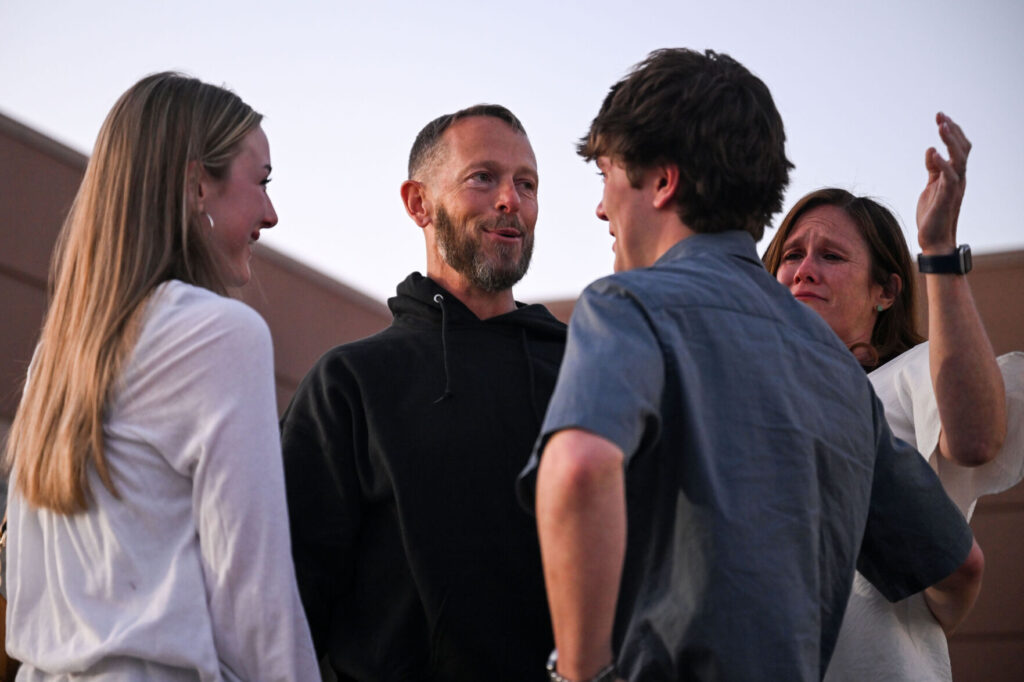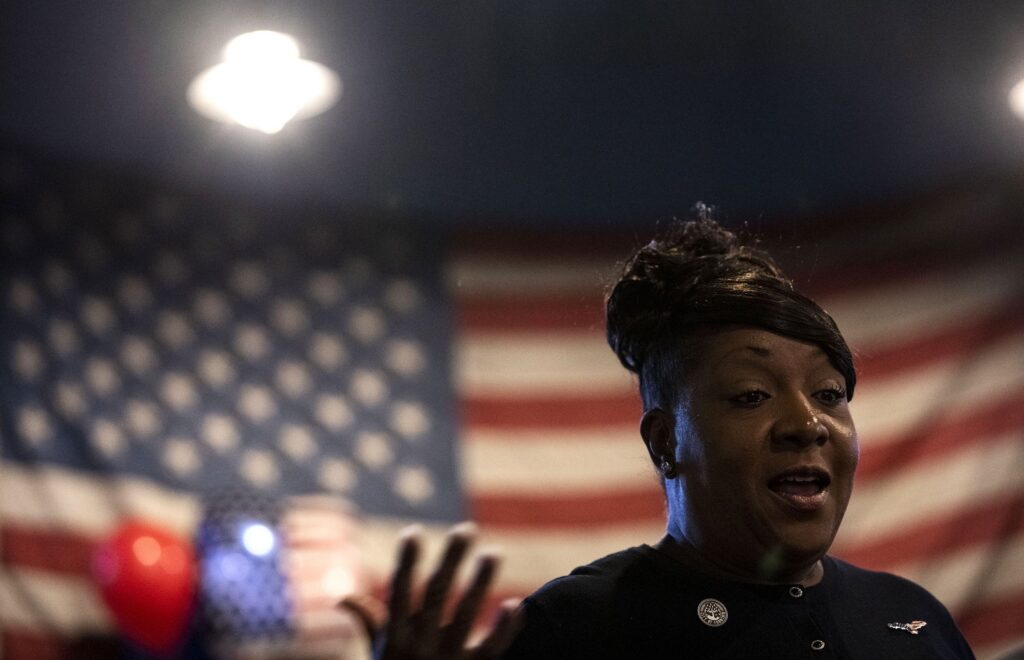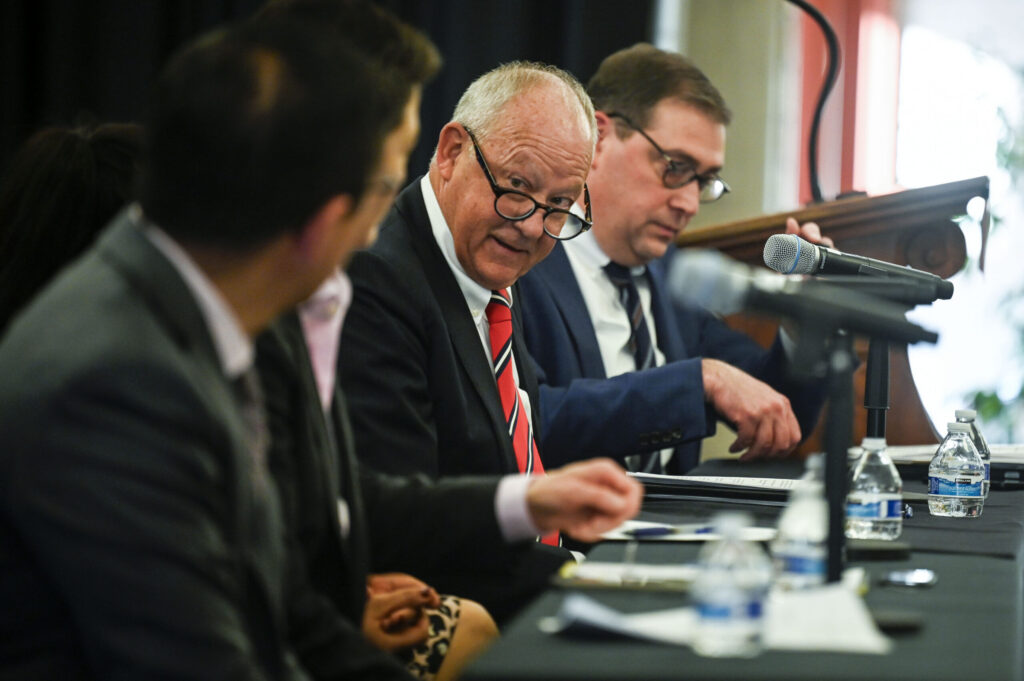Colorado Supreme Court adopts scaled-back racial bias rule after 2.5 years of consideration
The Colorado Supreme Court on Thursday adopted a long-stalled rule aimed at curbing racial discrimination in jury selection, which differs in substantial ways from the proposal its criminal rules committee forwarded more than two years ago.
Prominently, the court removed the original default prohibition on lawyers removing jurors of color for certain reasons that, while not explicitly racial, may nonetheless correlate with race. Those reasons included a juror’s distrust of law enforcement or belief that police engage in racial profiling.
The final rule does not bar dismissals for those reasons, but rather provides that a juror’s contact with law enforcement is a factor judges may consider when determining if intentional or unconscious bias is at play.
The Supreme Court also attached a comment to the rule expressing its belief that guidance about unconscious racial bias in jury selection was “not inconsistent with” the U.S. Supreme Court’s landmark 1986 decision that found purposeful racial discrimination unconstitutional.
Colorado Politics contacted the membership group for district attorneys as well as the criminal defense bar, but did not receive comments about the final rule.
Emma Mclean-Riggs, a senior staff attorney with the ACLU of Colorado, said the organization was disappointed the court’s final product was not “more expansive” than existing precedent.
The clarification that a judge’s evaluation of juror dismissals “can encompass implicit or unconscious bias does not address its fundamental failure to do what it was asked to do by the advisory committee: clearly provide broader protections against racial discrimination in jury selection than those offered by federal law,” she said.
The amendment to criminal Rule 24 capped a prolonged and contentious debate about how to prevent lawyers — particularly prosecutors — from dismissing, or striking, jurors of color from criminal trials because lived experiences related to their race have made them skeptical of law enforcement.
Nearly 40 years ago, the U.S. Supreme Court recognized in Batson v. Kentucky that purposeful racial discrimination in jury selection was unconstitutional. Now, if the prosecution strikes a juror of color, the defense may raise a “Batson challenge,” forcing the prosecutor to justify the dismissal with a “race-neutral” reason. The procedure applies to “peremptory strikes,” which do not require a justification for removing a juror unless there is a Batson challenge.
The original proposed change to Rule 24 aimed to reduce less obvious forms of exclusion that are not explicitly due to a person’s race — for example, dismissing a juror of color for expressing distrust of police, living in a “high-crime neighborhood,” or having prior contact with law enforcement. The rule would have also created restrictions on removing jurors for their demeanor — like when an El Paso County prosecutor dismissed a Black woman who allegedly had a “sour look on her face.”
In February 2023, the state Supreme Court held a lengthy public hearing on the draft rule change. Prosecutors uniformly opposed the proposal, arguing it would be harder to dismiss jurors of color who exhibit bias against law enforcement. District attorney opposition had sunk an earlier effort by Democratic lawmakers to enact the change legislatively in 2022.
After the hearing, the court seemed to coalesce around a different solution — asking the legislature to eliminate peremptory strikes. But in late May, Justice Carlos A. Samour Jr. informed the criminal rules committee that the Supreme Court had settled on consensus language that was meaningfully different from the original proposal. Samour wrote that his court was “restricted in what we can do” because of the U.S. Supreme Court’s Batson decision — even though the Washington Supreme Court adopted a similar racial discrimination rule nearly a decade ago.
Defense attorneys and trial judges were critical of the court’s revisions, arguing they all but eliminated considerations of unconscious bias, which was the main point of the proposal.
“This was a chance for the judiciary to make a strong statement to the marginalized communities of Colorado that we acknowledge our historical errors and we are committed to repairing them. I fear in this respect we have failed,” wrote Weld County District Court Judge Vincente G. Vigil.
Among the changes the Supreme Court made after hearing from the rules committee:
• The justices eliminated references to Batson and “binding case law,” which gave some committee members pause about the rule’s ability to accommodate new protections as future cases arise
• The rule allows judges to consider “unconscious or implicit bias,” as those “may contribute or lead to purposeful discrimination”
• At the same time, the rule cautions judges against “engaging in speculation” about motives
• Although the rule does not require corroboration if a lawyer wants to remove a juror because of their demeanor, the final version restored, as a factor for judges to consider, whether opposing counsel corroborated the observation of the juror’s demeanor
The Supreme Court also inserted a lengthy comment, asserting its rule does not alter Batson and is “simply intended to provide further guidance.”
“Any provisions in this subsection addressing unconscious or implicit bias,” wrote the court, “are not inconsistent with Batson, as both conscious bias and unconscious or implicit bias may contribute or lead to purposeful discrimination.”
The rule takes effect on Jan. 2, 2026.
Colorado Politics Must-Reads:













